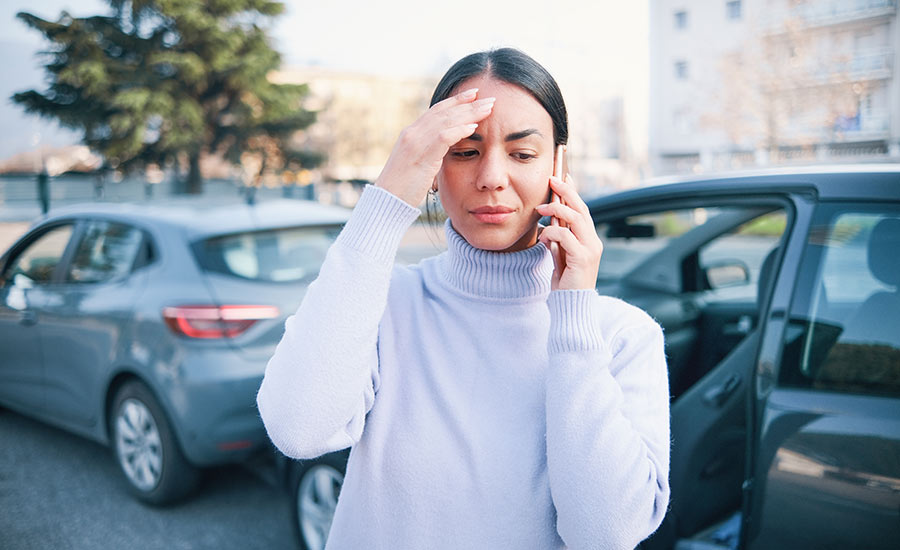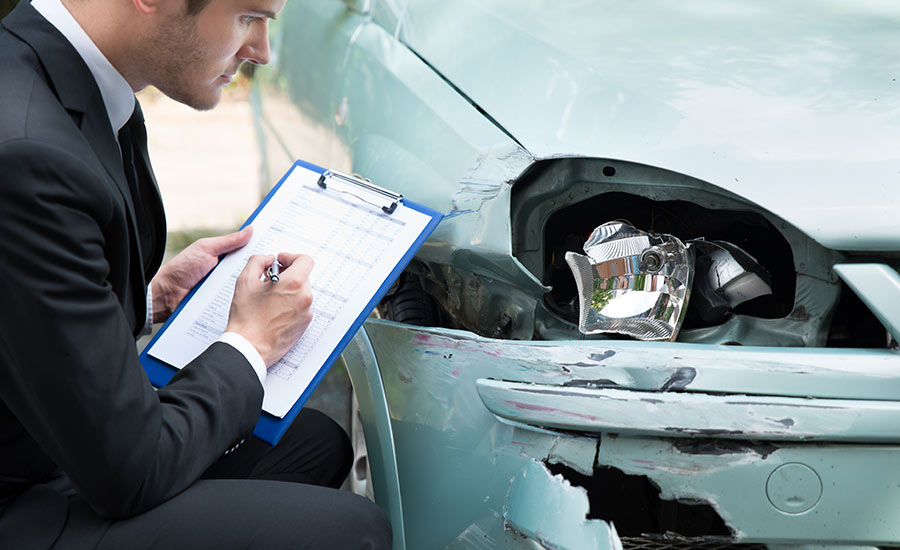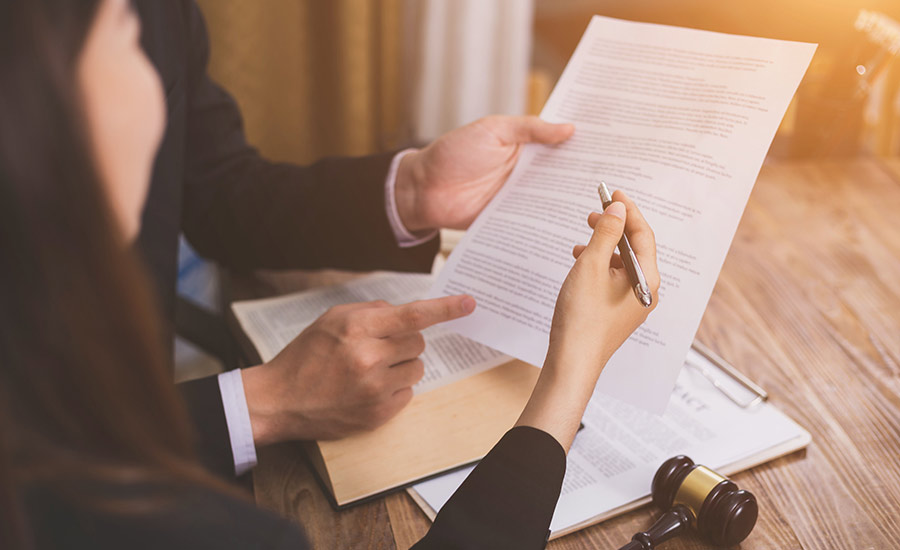

Allowing someone else to drive your vehicle, whether it’s a family member, friend or colleague, can come with risks — especially if your vehicle is involved in an accident when someone else is driving it.
If you’re wondering “What happens if someone else is driving my car and gets in an accident?” keep reading — we have the answer to your question!
Am I Liable If Someone Else Was Driving My Car And Got In An Accident?
The short answer is: it depends.
If someone else is driving your car and gets in an accident, liability will typically depend on:
- Whether you permitted the driver to use your car
- Whether you showed negligence when you lent the driver your car
- The conditions in your car insurance policy
Permissive Use
Permissive use refers to situations in which someone else drives your car after you have given them explicit or implied permission.
If you permitted another person to drive your car, your liability may be limited.
Many insurance policies cover permissive use, meaning that if you allow someone to use your car, your insurance policy applies while they are driving your car.
Non-Permissive Use
Non-permissive use refers to situations in which someone else drives your car without your consent — whether a friend or a family member, or a person who stole your vehicle.
If someone drives your car without permission and gets into an accident, your liability may be reduced.
However, if you made it easy for someone to take your car — by leaving the keys in the ignition, for example, you might still be held liable for the accident.
Negligence In Allowing Use
If you knowingly allow someone unfit or inexperienced to drive your car and they get in an accident, your liability might increase.
This includes situations in which you give your car to a person who:
- Has a history of reckless driving
- Has a suspended or expired driver’s license or has no license at all
- Is visibly impaired or unfit to drive due to a medical condition
- Is under the influence of alcohol or drugs
Liability can also be influenced by state laws. In some states, the vehicle owner may bear responsibility, regardless of who was driving.
Does My Insurance Cover An Accident If Someone Else Was Driving My Car?
If someone else has your permission to drive your vehicle, your insurance will typically extend coverage to that person while they are driving your car.
Under permissive use, your insurance covers:
- You
- Your spouse or child, if they reside in the same household
- Any other person you allow to drive your car
In states with a fault-based system, or tort states, the driver found responsible for an accident is obligated to compensate for all injuries and damages incurred by the other party.
Typically, the funds for such compensation are sourced from the insurance of the driver who was at fault and was driving your car at the time of the incident.
If the at-fault driver’s insurance limits are insufficient to cover all the damages, your insurance as a car owner may come into play.
In no-fault states like New York, regardless of who caused the accident, your Personal Injury Protection (PIP) insurance will be used as the primary insurance.
This means that if the driver who was using your car was injured, they may file a personal injury claim under your insurer to pay for their medical expenses and lost wages.
The insurance of the person who was driving your car may be used if your insurance is insufficient to cover the damages incurred.
In cases of non-permissive use, the driver may be held personally liable for the damages and may face legal consequences.
If the unauthorized driver has their own insurance, it will serve as the primary coverage for damages, before other applicable policies are considered.
Under both permissive and non-permissive use, if the damages exceed the limits of the coverage, you might have the right to hold the at-fault driver liable for additional damages. Contact a personal injury attorney to explore your options.
The Law Offices of Spar & Bernstein has a history of 50+ successful years tackling various accidents, including bus and truck accidents, Uber accidents, hit and run and drunk driver accidents.
Schedule a consultation with our knowledgeable lawyers — we will look into the details of your case and explain what to do next.

What Should I Do If Someone Else Was Driving My Car And Got In An Accident?
If you were not present at the scene of the accident but someone else was driving your car with your permission:
- Contact the driver: Reach out to the person who was driving your car as soon as possible.
- Collect information: Ask the person who was driving your car about the details of the accident, including the date, time, location and the parties involved. Obtain information about license plate numbers and the names of law enforcement officers present. Ask the person who was driving your car to take photos and videos of the accident scene and collect contact information from witnesses (if any).
- Retrieve the police report: If law enforcement was called to the scene, ask for a copy of the police report. This document will provide additional information about the accident and may be crucial for insurance purposes.
- Notify your insurance company: Contact your insurance company about the accident and explain that another person was driving your car when the accident occurred. Failure to inform your insurance company about what happened could complicate the claims process.
- Provide the driver’s information to your insurance company: Give your insurance company the contact information and any relevant details of the person who was driving your car, including their name, address and driver’s license information.
- Follow up with the driver: Remain in contact with the person who was driving your car about any developments, such as updates from your insurance company or legal proceedings.
- Call a lawyer: Consult with an attorney to understand your rights and responsibilities.
- Review and adjust your insurance policy: After the claims process is finalized, review your insurance policy. Consider adjustments if necessary — especially if other drivers operate your car on a regular basis.

Contact Spar & Bernstein For Car Accident Claims
If someone else was driving your car and got into an accident, contact our team at Spar & Berstein.
Our knowledgeable and compassionate team is here to provide legal assistance and guide you through the complexities of this situation.
We will:
- Communicate with the insurance companies involved
- Investigate the circumstances of the accident to determine liability
- Provide legal advice on how to protect your rights, if the driver was operating your vehicle without permission
- Represent your interests in the event of legal proceedings
- Keep you informed throughout the entire process, providing regular updates on the status of your case and answering any questions you might have
Contact our team at Spar & Bernstein to receive the legal support you deserve.
FAQs About Car Accident Liability
Still looking for the answer to your question? Check out our section of frequently asked questions below.
Can someone else drive my car if they are not on my insurance policy?
In many cases, you can allow someone else to operate your car without having them on your policy — especially if it’s occasional use.
However, to stay on the safe side, always confirm with your insurance company before letting someone else drive your car.
Should I report the accident to my insurance company even if the other driver has insurance?
Yes, you should report the accident to your insurance company regardless of whether the other driver has insurance or not, to help coordinate the claims process.
Are there restrictions on who can drive my car under my insurance policy?
Some insurance policies may restrict who can drive your car, with age or driving record requirements. Review your policy to make sure you understand all conditions.
If I lend my car to a friend or a family member, are they covered by my insurance?
Generally, lending your car to a friend or family member is covered under permissive use. Make sure your policy allows permissive use, and that the driver meets any specified criteria.
Can I track the progress of the insurance claim if someone else was driving my car?
Yes, in most cases you will be able to track the progress of the insurance claim with your provider. Communicate with your insurance company, ask for updates and provide necessary information to expedite the process.
What happens if someone who isn’t on my insurance crashes my car?
If someone who is not on your insurance causes an accident while driving your car in an at-fault state, the primary responsibility for covering damages will fall on the at-fault driver’s insurance. Your insurance may be involved if their coverage is insufficient.
In no-fault states, regardless of who is at fault, each party’s insurance will cover their own medical and lost wages expenses.


